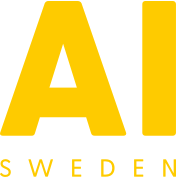Activities for Information-driven healthcare
Using AI solutions will result in better and more accessible healthcare for patients, improve the work enviroment and reduce administration for healthcare professionals.
Using AI solutions will result in better and more accessible healthcare for patients, improve the work environment and reduce administration for healthcare professionals.
The knowledge and the solutions created also support the move towards more individualized healthcare. It will enable preventive care that improves patient health and saves resources.
The Handbook for Information-Driven Care identifies thought leaders and consolidates value-creating AI examples. We share experiences and knowledge with other interested parties that want to follow and learn from the thought leaders.
Healthcare systems often have large, unstructured volumes of data that are inaccessible to AI solutions. Our partners Region Halland and Halmstad University are working to unblock this data. This has been a key step towards being able to work with the data and produce algorithms for predicting healthcare outcomes, among other things.
These partners are sharing experiences, developing solutions for federated learning and carrying out research into the implementation of information-driven care.
Examples of key AI technologies:
- Decentralized learning, which involves training AI algorithms using data in different decentralized locations without sharing data samples, thereby preserving data privacy.
- Synthetic data, artificially created from real data and used for training AI models without using any real, sensitive data.
- Making AI models transferable between healthcare organizations.
- Language technologies, which can aid in retrieving information from unstructured text data.
Unlike many AI projects in healthcare, this innovation environment focuses not only on developing new technologies but also on creating solutions that can be implemented on a national level.
For more information, contact



